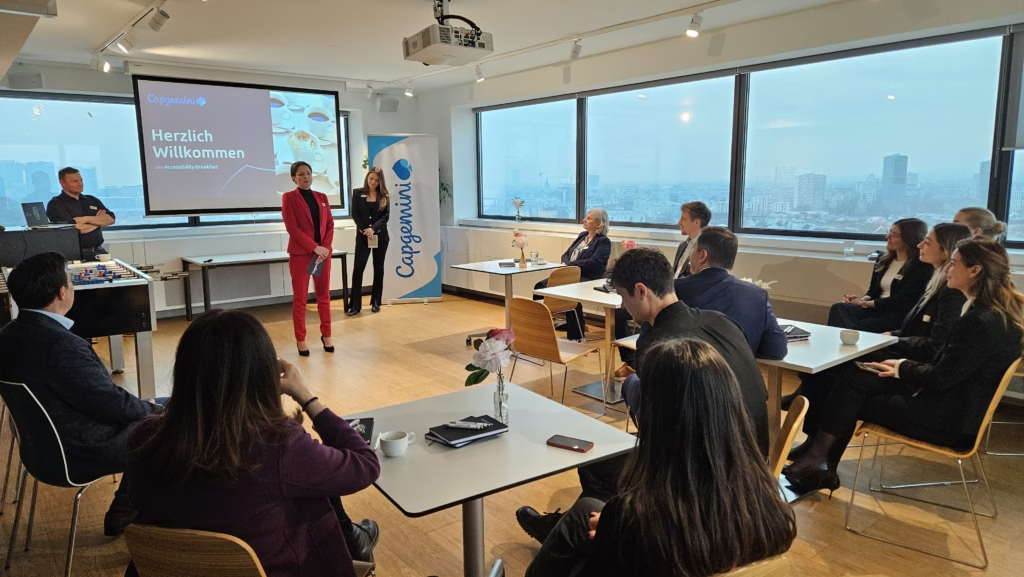
Capgemini Austria recently hosted an Accessibility Breakfast focusing on digital accessibility. Selected guests from a wide range of industries were able to gather a concise overview of all the relevant facts about the upcoming legislation regarding digital accessibility. The event was opened by Martina Sennebogen, CEO of Capgemini Austria, followed by keynote speeches from the company's experts. MyAbility partners also participated.
EU Accessibility Directive – what you need to consider
From June 28, 2025, compliance with the European Accessibility Regulation (EAA) will be legally binding for the private and public sectors. Until then, products and services must comply with the requirements of the EAA and the Austrian Accessibility Act so that everyone can perceive, understand, navigate, and use the web. What should be considered until then:
Companies with more than ten employees and an annual turnover of more than two million euros must provide accessible websites, apps and other digital products or services.
Exceptions apply only to certain third-party content or time-based media.
Organizations based outside the EU must also comply with the regulation if they operate commercially in the EU market.
Attract new customers through digital accessibility
Currently, only four percent of all websites worldwide are accessible, even though more than one billion people live with a disability. In Austria, 1.9 million people with disabilities are registered, and 10 percent live with severe limitations. Many of these people are excluded from everyday digital offerings, causing companies to ignore potential customers. Digital accessibility ensures that everyone has equal access to digital resources. For people with disabilities, this means a significantly higher quality of life through access to important information and services. Furthermore, all users benefit from accessible digital offerings, as they are often clearer and easier to use. Clear fonts and understandable language, for example, make websites more pleasant to use for everyone.
"Accessibility is more important than ever to ensure truly inclusive products and services. The goal of the event was to raise awareness among our guests about the new regulation and provide them with useful recommendations for the next steps. We have the necessary expertise. Our experts can support companies with accessibility audits, usability tests, and customized roadmaps to make digital products and services—such as websites or apps—accessible," said Hellmuth Leinfellner, Head of Digital Customer Experience at Capgemini Consulting Austria.
Inclusive design
The Web Content Accessibility Guidelines (WCAG) are an international standard that creates a multi-level set of guidelines and instructions that make web design and development as accessible as possible for people with disabilities. People who use assistive technologies particularly benefit from these standards. The content of a WCAG-compliant website is presented in a way that is understandable to all users, simple and intuitive operation is guaranteed, and texts and structures are easy to read and accessible. Currently, the revenue losses due to an inaccessible website amount to over 200,000 euros. This means that the implementation of accessible websites is not only ethically relevant but also holds enormous revenue potential.
About Capgemini
Capgemini is a global business and technology transformation partner for organizations. The company supports them in their dual transformation towards a more digital and sustainable world, always focused on making tangible progress for society. Capgemini is a responsible, diverse group of companies with over 55 years of history and 340,000 employees in more than 50 countries. Clients trust Capgemini to unlock the potential of technology for the full breadth of their business needs. With its strong strategy, design, and engineering expertise, Capgemini develops comprehensive services and end-to-end solutions, leveraging its leading capabilities in AI, generative AI, cloud, and data, as well as its deep industry expertise and partner ecosystem. The group generated revenues of €22.1 billion in 2024.
